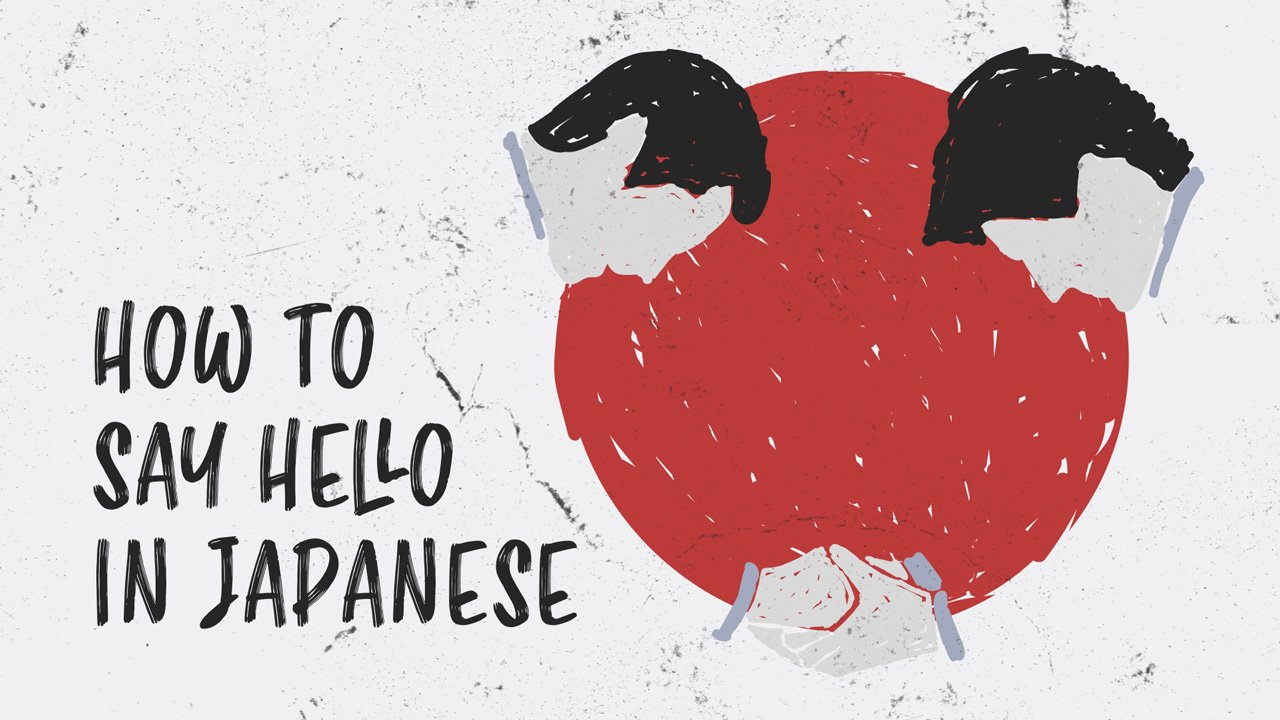If you came to this article it is because you want to know how to say hello in Japanese. Basically we can say that it is said like this: konnichiwa (こんにちは), which also means good afternoon. In most languages there are several ways to say hello and Japanese is no exception. We will show you which are the most used in this language; each expression should be used according to the situations or contexts in which you find yourself.
 The Japanese language is also called the Japanese language and belongs to the Japanese family, it is spoken by more than 130 million people around the world, mainly on the islands of Japan. Its origin was in northeast Asia.
The Japanese language is also called the Japanese language and belongs to the Japanese family, it is spoken by more than 130 million people around the world, mainly on the islands of Japan. Its origin was in northeast Asia.
What do you need to say hello in Japanese?
Eager to want to learn Japanese
Instructions for saying hello in Japanese
- Konnichiwa: ( kohn-ni-chi-wah.) (こんにちは) means hello and is the word that is used most daily to greet and can also be used for different purposes; so if you learn this expression, you will basically be able to say hello, since you can use it with anyone, whether they are of your same social status or not; as we mentioned before it also means good afternoon.
- Moshi moshi: ( mohsh mohsh) ((もしもし) is a greeting that is used to answer the phone and replaces konnichiwa, it is important that you know that you should not use this term in person.
- Ohayō gozaimasu: ( oh-jah-yoh goh-zai—mah) (おはようございます) is a morning greeting, more or less until 11:00 am because the literal meaning of this word becomes “it’s early”, when you greet your family or friends you can use a more informal greeting by shortening this and saying only “ohayō”.
- konbanwa: ( kohn-bahn-wah.) (こんばんは) This greeting is the one used to greet in the afternoon, until approximately 5 pm.
- Oyasumi nasai ( oh-yah-su-mi nah-sai. ) (おやすみなさい) this is the expression that is used from the moment it starts to get dark, although many times these words are used more as a farewell instead of a hello, but that does not stop it from being a greeting. With family and friends you can shorten the phrase to simply
- Ossu: ( ohss) (おっす) is a completely informal greeting that is used among friends and family, but it is only used by men, never with people of the opposite sex, the word could be translated as Hey man!
- Yaho: (yah-hoh) (ヤーホー) is a greeting that is also used between friends in the city of Osaka, which is written in katakana.
- Saikin do? : ( sai-kin doh.) (さいきん どう) is a greeting in the form of a very informal question, its translation in Spanish could be ¿qué onda?, or in English. What’s up?, this expression should only be used with relatives, friends or trusted people.
- Hisashiburi: ( oh ji-sah-shi-bu-ry) (久しぶり) is the greeting you should use with people you haven’t seen in a while; In Spanish it’s something like saying “we haven’t seen each other in a long time”, use it with family and friends you haven’t seen in years, months or weeks.
- Hisashiburi desu ne: ( oh ji-sah-shi-bu-ry deh-su nei) (お久しぶりですね) is a more formal way of expressing the above greeting.
- Genki desu ka?: ((お)げんきですか) means how are you? to which one should reply Hai, genki desu which means I’m fine.
Tips for Saying Hello in Japanese
- The word hello in English (hello), has become very popular in various parts of the world, introducing it daily in each language, so it is normal, for example, that if you watch anime series, you find that they pronounce it to say hello, only like In Japanese there is no l, they say heroo.
- In Japan it is also appropriate to bow in greeting; if the other person does it first, never forget to return it, not doing so would be the equivalent of refusing to shake hands with someone who extended it. The person who bows second should bow a little more, that’s showing respect.
- In Japan there are many dialects, but these are greetings that you could use anywhere in the country.
- To say goodbye you can use: mata ((じゃ)また) whose meaning is see you, or Sayounara (さようなら) which means goodbye. Also Mataashita (またあした) which means see you tomorrow, or O-yasuminasai (おやすみなさい), which means rest.
